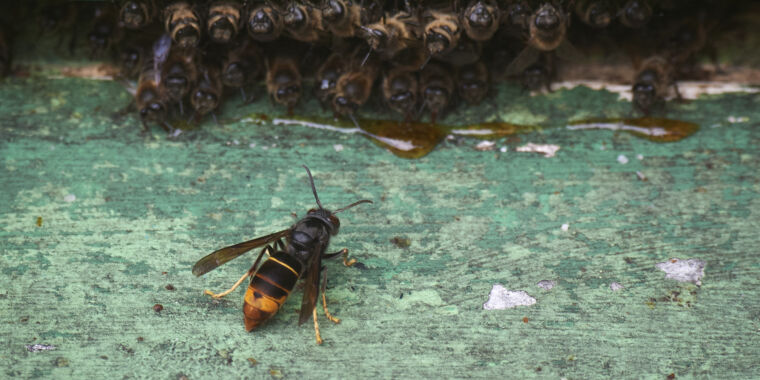A species of hornets that kills honeybees has been spotted in the U.S., the yellow-legged hornet (Vespa velutina), this hornet has its origins from Afghanistan, eastern China, and Indonesia and has in the past two decades spread to South Korea, Japan, and Europe and now has spread to the U.S. Scientists are trying to find a way to limit this threat to honeybees and to eradicate these hornets:

 arstechnica.com
arstechnica.com

The hornet has landed: Scientists combat new honeybee killer in US
Researchers are working to limit the threat while developing better eradication methods.


